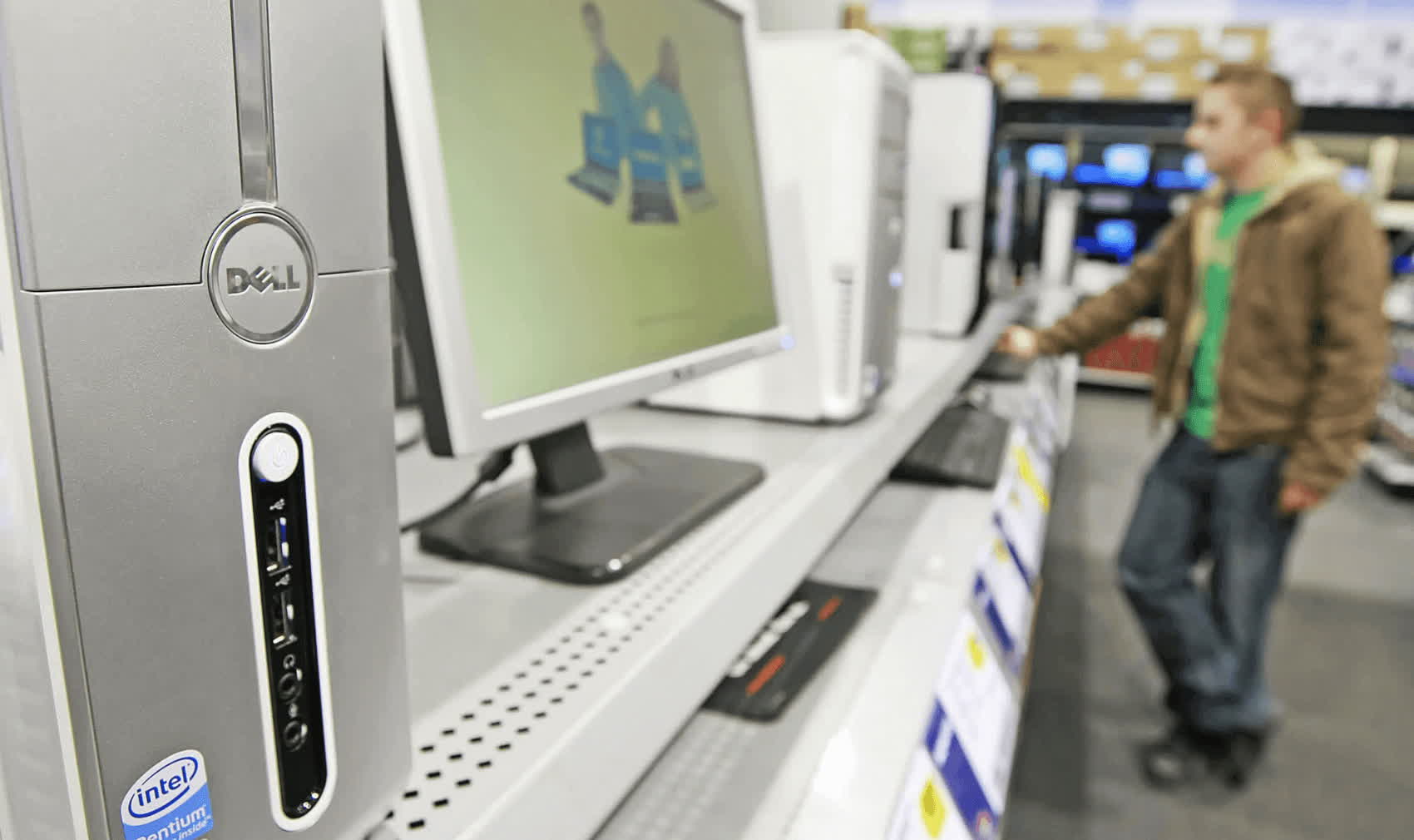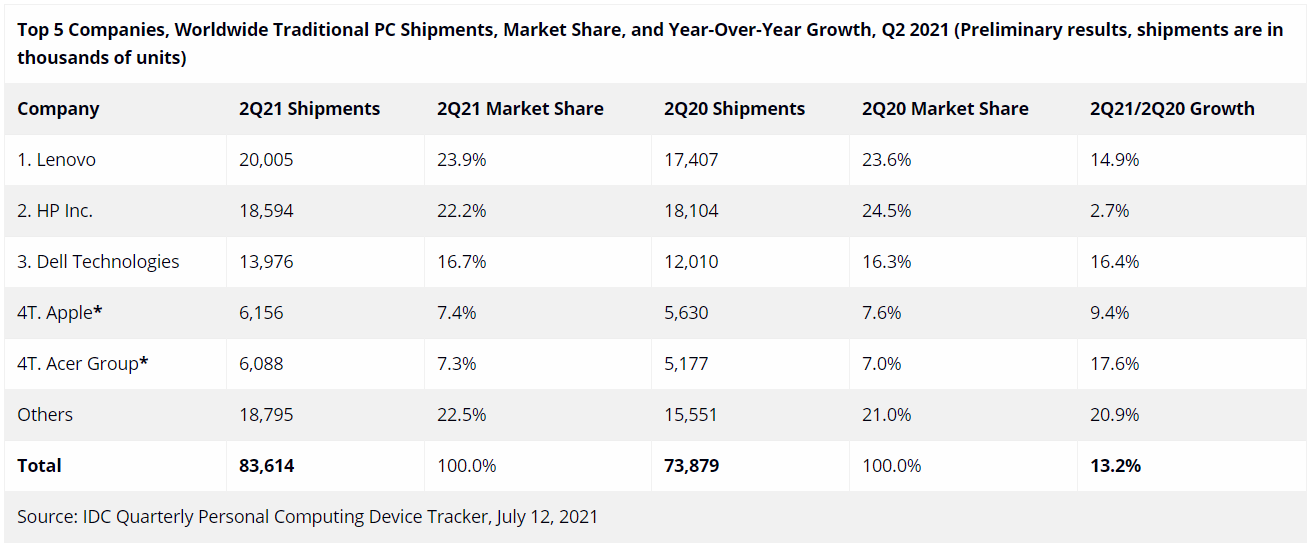Exactly what I was about to say. An overclocked 6th gen. Intel CPU (or even a 4th gen.) or the equivalent of a 1XXX AMD one with 16/32GB RAM 3GHz+ and a GTX 1080+ GPU can easily support like 90% of everything a home/workstation consumer uses their computer for - from gaming through streaming to rendering. A 6-core (overclocked) CPU with 12 threads from 2016 with a RTX 3XXX/6XXXXT can still do great for 1440p and even reasonable 2160p gaming.
I am personally planning to upgrade my main system entirely just to get the best of what I can currently receive, however know that simply more cores and some more GPU power won't bring me significantly more performance that what I have at the moment. On the top of that I have an u.2 professional Intel drive and MLC m.2 ones that I don't want to replace for QLC ones that supposedly have better speeds but will last less and the claimed performance is based on a limited SLC cache only. Is this an upgrade to what I currently have, especially the u.2? I also don't think the latest GPUs are the best one can get currently as despite of being times better than the 1080Ti/5700XT series for example, they are not optimized and are extremely power hungry, yet struggle to provide the needed 2160p performance in certain titles with RT enabled. The next generation will hopefully provide the ultimate UHD (and even true 4K) performance with RT and 100+ FPS on all titles for years to come.
Manufacturers are not only raising their prices but are trying to sell a comparatively inferior product (storage memory, VRAM size - GTX 1080Ti came with 11GB when RTX 3080 with 10 only) etc. RTX 3090 is in another price category, this is why I compare to 3080. The only way a planned obsolescence can take place is via the mobile/tablet/laptop line and through forced software upgrades (Windows 11). Otherwise a top-end 5-7-year-old (overclocked) PC with enough RAM and top-of-the-line GPU at the time can easily give you everything you need for at least another 5 years, if not many more to come.
I wouldn't worry too much about upgrading solid state drives - IMHO differences are minimal and only really noticeable on benchmarks, even between an entry level DRAMless SATA SSD and a high end NVme SSD. People only notice that 3s - 4s difference (at most) in Windows boot times and game loading screens between entry level and high end drives, because they're naturally looking for it and paying attention when comparing drives.
Exactly. Earlier this year I finally upgraded from a i5 4690 (4th gen) / 16 GB DDR3 / SATA SSD to a i7 10700K / 64 GB DDR4 / NVme SSD. For me that i5 4690 was still a BEAST of a machine for most tasks, other than playing the most recent AAA games, 7th gen console emulation and video encoding. I only upgraded because like you I wanted the best, and also because the hardware was beginning to show signs of waning reliability and component stress, pointing that the end of its useful life was drawing near (maybe I would've stayed with it for a few more years if it wasn't for this last part). Still, of all new generational upgrade PC builds I've done since the 1990s, this is the one that has brought me the smallest returns in noticeable performance improvement, despite it being the longest upgrade cycle since I got my first PC. Even my previous upgrade from a Core 2 Duo E8400 / 8 GB DDR2 / HDD to the i5 4690 has brought far more noticeable performance improvements in all areas. (GPUs are a bit complicated to add into the equation and a different story, because I tend to upgrade them more often, usually 2 times over the course of an upgrade cycle so I usually carry the last one over to the new build - I currently have a 2060 Super which is more than good enough since I'm a semi-casual gamer who uses a 1080p screen).
I have also upgraded my HTPC this year, for the same reasons - going from an A6 6400K / 8 GB DDR3 / HDD to a Ryzen 5 3400G / 32 GB DDR4 / SATA SSD. Same story with perceived diminishing returns.
Keep in mind none of my previous or current machines are overclocked - I don't do overclocking, always run stock. So in my opinion it's not necessary to overclock an older PC, unless it's a really, really old outdated machine that you want to extract every bit of juice from it to extend its usefulness a little longer.
Unless there's some unexpected major breakthroughs in VLSI/CMOS semiconductor technology and manufacturing soon, that make the advances in PC processing power go parabolic again, I'm expecting all this new hardware to serve me well for nearly 10 years if they don't fail before that.
It depends, but I don't think Apple will get to claw back market share (or if it does it will be insignificant).
2022 will be a big year for PC with next gen platforms from AMD, Intel and Nvidia: smaller process nodes, new sockets, new chipsets, DDR5, PCIe 5, chiplet GPU architectures, 3D stacked cache for CPUs, etc etc etc (and yes, even Windows 11 is a big factor)
I haven't seen a convergence of this much new technology in a single year ever. it's incredible.
>smaller process nodes
>new sockets
>new chipsets
>DDR5
>PCIe 5
>chiplet GPUs
>3D caches
>Windows 11
All memes, other than maybe chiplet GPUs. Consumerist bait memes that won't bring any significant noticeable increases in performance even fully converged.
Of course for late millennials and zoomers who haven't lived through and witnessed the parabolic performance increases every year in the 1990s and early 2000s, it might look like a big deal, but for us old timers it will be meh. Though I admit it wasn't all roses: it wasn't very fun experiencing your top-end $4000 gaming PC end up demoted to a toaster in only 18 months and to a potato in only 3 years (or even earlier).
Not too sure about Moore's law, but I do believe that mobile devices have been, and will continue to eat into the PC space. At least, I have friends that don't bother buying or upgrading their laptop/PC because they told me the phone is good enough. And we can certainly see that trend where PC sales have been weak or declining for years before COVID hit and the work/ study from home requires a PC/ laptop for better experience. In addition as you've mentioned, it is also true that most people actually don't upgrade their systems that frequently. It is normally when it fails before they replace it. COVID again being the reason for the sudden surge in demand because 1 household may likely have insufficient PCs to support everyone using at the same time. So everyone went out to grab 1 or more PC/ laptop resulting in a surge in demand that caught PC makers by surprise.
Sure, mobile devices do eat and will keep eating into the PC space like you say. I only disagree with the notion that they're the main driving factor.

